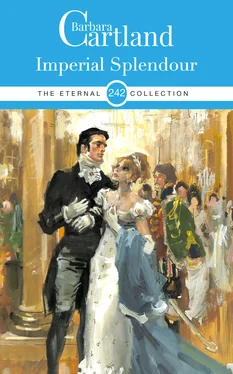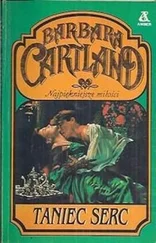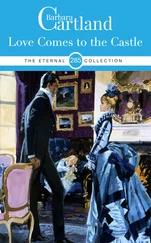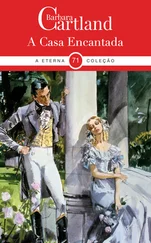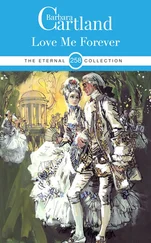As Napoleon waited impatiently in Moscow for an Armistice, the vacillating Russian Czar Alexander was transformed into a man fortified by deep religious fervour. He replied that he would not negotiate while ‘one enemy soldier remains on Russian soil’.
After five weeks Napoleon had no option but to withdraw his Army and begin the long trek home. But he had left it too late.
On November 4 ththe snow began to fall and two days later the temperature was many degrees below freezing. Lack of food and clothing and the savagery of the Russian peasants resulted in the roads being strewn with dead men, guns and horses. Half a million of the Grande Armée failed to reach France.
In April 1813 Napoleon abdicated and was exiled to the island of Elba. When Alexander entered Paris the crowds went wild and his own country begged him to accept the title of ‘Alexander the Blessed’. It was the Czar who, at the conquest of Vienna, first had the idea of a League of Nations.
The Russians rebuilt Moscow and, when I visited Leningrad, now St. Petersburg, in 1978 I could see how brilliantly they had rebuilt that City after the terrible devastation left by the Germans in 1941. The Palaces that had been looted, shelled and blown up by mines are now elaborate, splendid and exactly as when they were designed on the order of Catherine the Great.
The famous Duke of Wellington in 1826 thought St. Petersburg ‘the most beautiful City on earth’.
Armand-Emmanuel Due de Richelieu (1766-1822) held the post of Governor-General of New Russia until 1815. After the War he was twice Prime Minister of France under King Louis XVIII.
Les Sylphides launched the whole Romantic period of the ballet and was performed in Paris in March 1832, in London in July and in St. Petersburg in September.
The costume attributed to Eugène Lami with the long bell-shaped skirt, became the accepted attire of ballerinas of the period and is still worn. Because it is so familiar, and I wanted my readers to know exactly how Zoia looked, I have anticipated its first performance in St. Petersburg by twenty years.
This book is dedicated to a good friend of mine, The Earl Mountbatten of Burma, who first suggested that I should visit Russia to obtain the background for a novel. He also helped me with many authentic details of the period.
The Duke of Welminster walked across the room to pull back the curtains from the window and stare out at the Neva.
In the pale sunlight, which later would deepen to a red heat, the river, one of the shortest in the world, was shimmering on the water.
It reflected the bright and shining gold on the needle-like spire on the Peter and Paul Cathedral on the far shore and the Duke could also see the bastions and battlements of the Fortress built by Peter the Great.
He was for the moment, however, not concerned with the beauty of St. Petersburg, which had left him somewhat surprised by the perfection of its architecture, but with the Russian Army awaiting their Commanders-in-Chief’s conclusion as to the direction that the French intended to advance.
The Duke’s contemplation was interrupted by a soft cry of protest.
“Have you forgotten me?” a woman’s voice asked. “I am still here and wanting you.”
There was no mistaking the invitation and the seductive undertone that made the words, spoken in English but with a distinct trace of a Russian accent, sound passionately alluring.
The Duke turned round with a smile on his lips.
There was no doubt that the Princess Katharina Bagration was very lovely, in fact one of the loveliest women that he had ever seen.
Lying back against the lace-edged pillows with her hair falling over her white shoulders and her huge eyes seeming to fill her whole face, she looked very much younger than she actually was.
There was a distinct Oriental mystery about her, an Andalusian charm and, when she was dressed, a Parisian elegance.
It was not surprising, the Duke thought, that the Czar Alexander I had chosen her to spy on him, a fact that he had been aware of from the moment he had arrived in the City of St. Petersburg.
The Duke was very experienced in the art of intrigue and had carried out a number of unofficial Diplomatic missions with such success that he had not been surprised when the Prime Minister, Lord Liverpool, had sent for him.
“I want your help, Welminster,” he began, “and I think you can guess where I wish you to go.”
“To Russia?” the Duke had queried.
“Exactly,” the Prime Minister replied.
Lord Castlereagh, the Foreign Secretary, who was in the Cabinet Room, interposed to add,
“For God’s sake, Welminster, please find out what is happening. The reports I receive contradict themselves to the point where I don’t know whether I am on my head or my heels as far as that enigmatic country is concerned.”
The irritation in the Foreign Secretary’s voice was very evident and the Duke could well understand his frustration.
Czar Alexander had kept not just the British but most of Europe seriously confused by his behaviour during the last few years.
And even Napoleon Bonaparte might be excused for finding him incomprehensible.
Having moved through the first years of his reign at the beginning of the century, as a shadowy indecisive figure, Alexander’s attention had become focused on Bonaparte.
The Corsican’s astonishing Military successes had turned the whole of Europe into a turmoil.
The Czar could not make up his mind whether to join a coalition against the French or to try to continue his father’s policy of friendship.
Napoleon had actually suggested to Czar Paul, his father, that France and Russia should partition the world, but, when Bonaparte had trampled into the dust the terms of the Treaty of Amiens, the Russian Sovereign had written that he seemed to be ‘one of the most infamous tyrants that history has ever produced’.
After the great disaster at the Battle of Austerlitz, when the twenty-eight year old Czar Alexander, leading his Army as its Commander-in-Chief, had been completely routed, his gallantry had seemed to desert him.
He had ridden away from the battlefield alone, dismounted and collapsed under an apple tree, where he had wept convulsively.
Although he tried to excuse himself by blaming the Austrians, the Russians suffered yet another disastrous defeat at the Battle of Friedland.
It was then, to the amazement of the Russian people, that Alexander had signed ‘a Treaty of Friendship’ with the French when he had promised faithfully that he would take part in the Continental Blockade of trade against England.
This had brought him extreme unpopularity with the Russian people together with the fact that they could not adjust themselves after Catherine the Great’s victories to a number of ignominious defeats.
In the previous year, 1811, Alexander had listened to his subjects and refused to send soldiers to fight for the French and, what was more, he had refused to close Russian Ports to neutral shipping and uphold the Blockade against England.
“I cannot help thinking,” a famous British General had said to the Duke in London, “that if it comes to a showdown, Russia will prove a poor match for Napoleon’s Grand Army.”
The Duke had felt inclined to agree with him, but now that he was actually in Russia he began to have his doubts.
Indeed yesterday the Czar had shown him a letter from Count Rostopchin, the Governor of Moscow, he had found the contents very convincing.
The Governor had written,
“ Your Empire, Sire, has two powerful defenders, its vast space and its climate. The Emperor of all Russia will be formidable at Moscow, terrible at Karzan and invincible at Tobolsk. ”
Читать дальше
